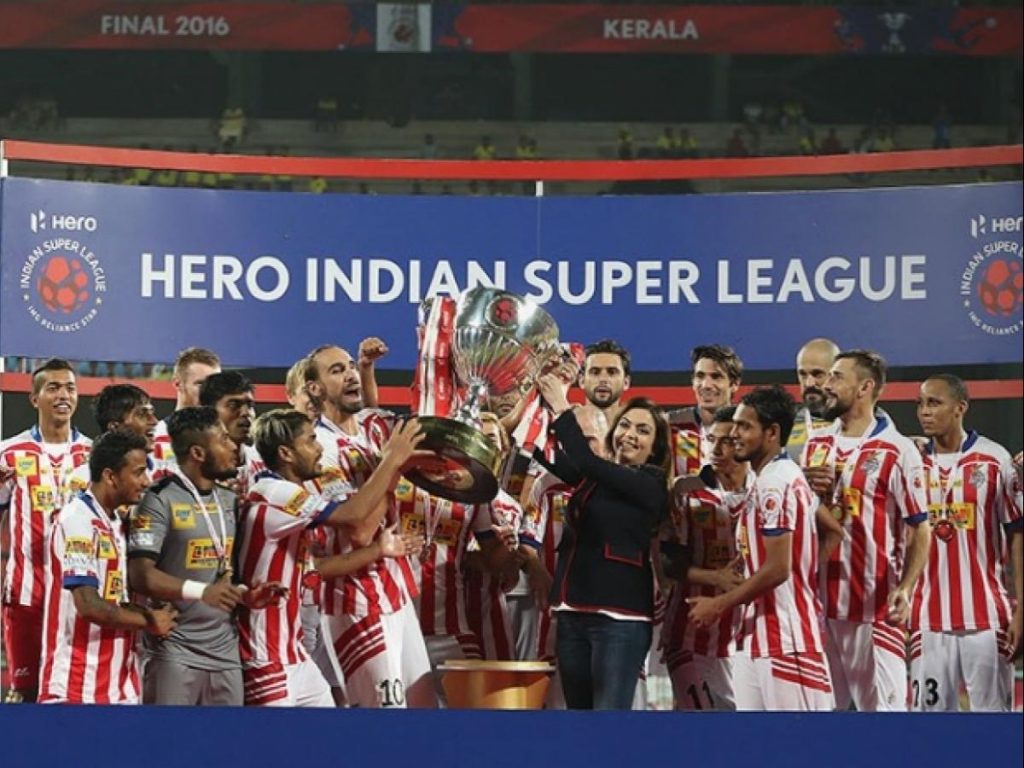The Indian Super League, also known as the ISL is a football professional league in India that was launched in 2014 as an initiative of the private sector to recreate a project modelled on the successful franchise system of the cricket league in India, the Indian Premier League.
A partnership between IMG Worldwide (one of the biggest sports management companies in the world) and Reliance Industries (The biggest business conglomerate in India) pushed the project forward. In the beginning, it meant a confrontation with the All India Football Federation and their own I-League which was the only football competition until then. But the growing success of the ISL meant that as of 2017 the two leagues were invited to find an agreement to merge as the Asian Football Federation recognized both as India’s football top tier.

The Economic Interest in Football
Among the main goals set there was the aspiration of creating competitive externalities in order to motivate India’s footballing system in order to qualify for the 2026 World Cup and establishing new management standards in the Indian sports industry.
But one of the reasons behind so much interest from the private sector to invest in this new league was the goal to create an attractive tournament for an ever-growing fanbase of football. Businessmen in India saw an opportunity to diversify their portfolios and try to capture a part of the market of one of the most popular sports in the world.
Football is a global phenomenon that profits more than the footballing industry. Companies benefit from the association to such a popular sport like the TV rights industry that sells licenses for billions of pounds in the case of the Premier League for example. In India, Star is the owner of the broadcasting rights of the ISL. Star is a subsidiary of the Walt Disney Company and it is the biggest media conglomerate in the country with more than 60 TV channels and almost 800 million spectators.
Then you have the automotive industry that invests heavily in sponsoring packages in football. Practically every big football team in Europe has its exclusive automotive company sponsoring the club and providing cars to their athletes. In the case of India, the naming of the league was sold to HERO, the biggest manufacturer of motorcycles in the world who can now boast the right of naming the tournament the Hero Indian Super League.
Other industries such as the gambling industry have also built business models derived from the growing interest of fans in football. You can even find platforms where fans are able to bet on the best betting sites in India that offer European football tournaments like the English Premier League (the most popular foreign league in India). Fans can even get free football betting tips and improve their winning odds by combining different formats when betting. Currently, 75% of the clubs in India have formed sponsoring partnerships with betting companies that now have their logos in some of the shirts of ISL teams.
The actual state of football in India
Currently there are 11 clubs in the ISL with the recent addition of SC East Bengal, a traditional I-League club property of Shree Cement, the second biggest company in its industry. There are also 2 new teams with Hyderabad FC replacing Pune City and ATK Mohun Bagan replacing Atletico de Kolkata after the exit from the franchise of Spanish team Atletico de Madrid. Hyderabad is owned by Vijay Madduri from Incessant, businessman Varun Tripuraneni and Rana Daggubati, famous Bollywood actor.
Other owners include City Football Group, a holding investing in several football clubs worldwide such as Manchester City and Mumbai City in India. TATA the industry conglomerate and car manufacturer that owns Jamshedpur FC or GMS, the biggest buyer of ships to recycle in the world owning Odisha FC who recently appointed David Villa a Spanish footballing legend as their Head of Global Football Operations.
Since the start of the ISL, clubs endure amounts of debt that are being covered by the powerful financial muscle behind every team. The income generated by ticketing and mostly commercial activity is rising year after year and it’s expected that in the short term ISL clubs will start sharing profits to their owners, such as Bengaluru FC which was the only club that accounted for a small profit during the 2017-2018 season.